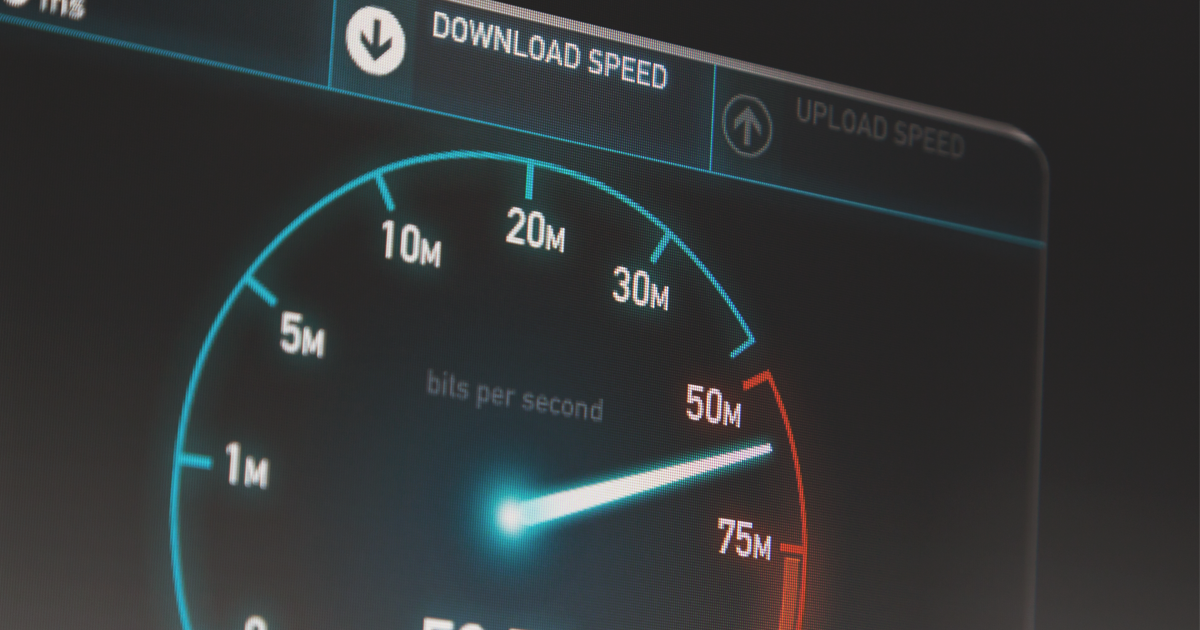Remember back in March when internet speeds took a nosedive because so many people started working or studying from home? That’s since been solved, for the most part, thanks to a combined global effort. YouTube and Netflix possibly prevented further speed degradation by reducing streaming quality as well. Still, we bet many of you thought of how you could increase your browsing speed.
Now, a VPN can’t exactly do that. In fact, you may experience a slight slowdown — since a VPN needs to encrypt your traffic, as well as route your data through a second location (the VPN server) before reaching its destination. Both of those operations take time and processing power, so a slowdown is expected — and a small price to pay for your data security.
However, there are certain cases where using a VPN improves your connection quality. Or more accurately, that a VPN prevents internet speed loss. Here’s how.
What Your Internet Speed Actually Means
Ever used a tool like Speedtest to test your connection after that one episode of The Office just wouldn’t load? You’ve more than likely been surprised when everything seemed fine. The speed test shows speeds comparable to what your internet provider advertises. So, what seems to be the problem?
Well, websites like speedtest.net only really test your maximum bandwidth. However, your ISP can throttle your connection at the protocol-level. For example, they could set video streams to run at a lower resolution while not limiting your overall bandwidth. Netflix is doing a similar thing right now to ease the load on the network infrastructure — except they lower video bit rates instead of resolution.
Moreover, speed test sites use servers that are close to your general area. So, even if your ISP isn’t throttling your bandwidth, you wouldn’t get an accurate result. Let’s say you’re testing your connection from somewhere in Europe. If the service you’re trying to access is located in the US, then a speed test won’t show you if there’s a connection problem along the way.
The internet works as a series of interconnected routers and networks. Your data “hops” between these routers on its way to the website you’re trying to access — and vice-versa. If one of those networks is having problems, your whole connection suffers. An internet speed test won’t show you that; you can diagnose these issues with Traceroute, instead.
Good news, though — a VPN can help you in both scenarios. First, let’s deal with bandwidth throttling.
How a VPN Helps with Bandwidth Throttling
There are several reasons why your ISP would throttle your connection. One of them is that you’ve gone over your data cap for the month, so everything slows down to a crawl. Unfortunately, a VPN won’t help you bypass your data caps. You’re stuck with paying more for no caps or switching internet providers.
With that out of the way, a VPN can help with selective throttling. Since a VPN hides your internet traffic from your ISP, they don’t know what to throttle. Do they slow down your streaming speeds? Your downloads?
Obviously, they can’t risk throttling the wrong thing. Nor can they slow down your entire connection without a good reason (like going over a data cap). As such, they’re forced to stop selectively restricting your network capabilities.
In an ideal world, they wouldn’t be doing that in the first place. But ISPs have done worse things (like lobbying to repeal net neutrality), so it’s to be expected. They are trying to “play the good guy” by removing data caps and stopping selective throttling while the pandemic rages on. Still, this is only a temporary measure — it’s likely back to throttling and data caps by the end of May.
How a VPN Helps with Network Problems
We’ve previously mentioned that one network failure along the way will affect your entire connection. If you’ve discovered an issue like that with Traceroute, then it might be possible to solve it with a VPN. For instance, let’s say the network data travels through a node in France on its way to the U.S., and that node is experiencing an outage.
By connecting to a VPN server in a different country, your data needs to travel through a different network. Essentially, you force the connection to take a separate route to its destination. This may not increase your browsing speed, but it may solve any connectivity issues.
Of course, that entirely depends on which route the VPN server uses to connect to the final website. It might take a bit of trial and error before you find the right server that will correct the problem. IPVanish has 1,300 servers in 75+ different countries — plenty of options, so give those a try!
